- Home
- Leo Tolstoy
Lives and Deaths Page 2
Lives and Deaths Read online
Page 2
“Please do smoke,” she said in a beneficent yet dejected voice, and began to discuss the price of plots with Sokolov. Lighting up, Pyotr Ivanovich heard her enquiring very thoroughly about various prices before making a final decision. And then, having settled the matter of the plot, she dealt with the question of the choir. Sokolov left.
“I see to everything myself,” she told Pyotr Ivanovich, pushing aside the albums that lay between them. Then, noticing that his ashes threatened the table, she hastily moved an ashtray towards him and said: “It would be false to affirm that grief prevents me from dealing with practical affairs. Quite the opposite; if anything can—I won’t say comfort… distract me, it’s taking care of him.” She again took out her handkerchief, as if she were about to cry, but suddenly, as if overcoming her emotion, she shook herself and spoke calmly: “But there is something you and I must discuss.”
Pyotr Ivanovich bowed, but was careful to keep control over the springs of the pouf, which had begun to stir beneath him.
“He suffered terribly in his last days.”
“Was it very terrible?” asked Pyotr Ivanovich.
“Terrible! He screamed and screamed, not for minutes, but for hours on end. For three whole days he screamed without stopping. It was unbearable. I honestly don’t know how I endured it—you could hear him screaming through three closed doors. Oh, the things I was forced to endure!”
“And can it be that he was conscious the whole time?” asked Pyotr Ivanovich.
“Yes,” she whispered, “up to the very last minute. He said his goodbyes a quarter of an hour before he passed, and even asked that Volodya be taken away.”
Despite the unpleasant awareness of his and this woman’s insincerity, the thought of the suffering of a man he had known so intimately, first as a cheerful young boy, a schoolmate, then in adulthood, as a colleague, struck horror into Pyotr Ivanovich’s mind. He saw that brow again, that nose pressing down on the upper lip, and felt fear for himself.
Three days of terrible suffering followed by death. But that could happen to me, at any minute, he thought, and, for a moment, grew frightened. But that very second—and he himself did not know how—he was relieved by the customary thought that this had happened to Ivan Ilyich, not to him, and that it neither should nor could happen to him; to think otherwise would be to succumb to depression, which one mustn’t do, as Schwartz’s face had clearly indicated. And having reached this reasoned conclusion, Pyotr Ivanovich grew calm and began to enquire with interest about the details of Ivan Ilyich’s demise, as if death were an experience peculiar to Ivan Ilyich and entirely foreign to himself.
After going over the details of Ivan Ilyich’s truly terrible physical suffering (details that Pyotr Ivanovich learnt only by means of their effect on the nerves of Praskovya Fyodorovna), the widow evidently found it necessary to get down to business.
“Oh, Pyotr Ivanovich, how hard it is… How terribly, terribly hard…” And her tears came again.
Pyotr Ivanovich sighed and waited as she blew her nose. When she had finished blowing her nose he said, “Believe me…” At which point she began to talk again, and finally got around to what was, apparently, her primary concern in seeing him; this was the question of how to secure money from the Treasury on the occasion of her husband’s death. She made it seem as if she were asking Pyotr Ivanovich’s advice about her pension, but he saw that she already knew, to the smallest detail, what he himself did not know—just how much could be extracted from the Treasury on the occasion of this death; what she wanted to know now was whether she could somehow extract a bit more money. Pyotr Ivanovich tried to come up with some means of doing so, but, after giving it some thought and, for propriety’s sake, rebuking our government for its stinginess, he said it seemed no more could be got. At this she sighed and evidently began to look for some means to get rid of her visitor. He understood this, put out his cigarette, got up, pressed her hand and went out into the hallway.
In the dining room, where Ivan Ilyich had placed the clock that he was so delighted to have bought at an antique shop, Pyotr Ivanovich met the priest and several other acquaintances who had come for the service, and also spotted the familiar face of a beautiful young lady, Ivan Ilyich’s daughter. She was dressed all in black. Her waist, which had always been thin, seemed still thinner. The look on her face was gloomy, resolute, almost angry, and the way she bowed to Pyotr Ivanovich, it was as if he were guilty of something. Behind her, also looking offended, stood a rich young man whom Pyotr Ivanovich recognized, an examining magistrate—the daughter’s fiancé, he had heard. Pyotr Ivanovich gave them a mournful bow and wanted to proceed to the dead man’s room when, from under the stairs, appeared the little figure of Ivan Ilyich’s son, still a schoolboy, who bore an uncanny resemblance to his father. He was, for all the world, a little Ivan Ilyich, just as Pyotr Ivanovich remembered him from their law school days. His tear-stained eyes were such as one finds in impure boys of thirteen or fourteen. Upon seeing Pyotr Ivanovich, the boy grimly and bashfully knitted his brow. Pyotr Ivanovich nodded to him and entered the dead man’s room. The service began: candles, moans, incense, tears, sobs. Pyotr Ivanovich stood frowning, looking at the legs in front of him. He never once glanced at the dead man, yielded to no weakening influences, and was one of the first to leave. The downstairs hallway was empty. Gerasim, the butler’s helper, popped out of the dead man’s room, rummaged through all the coats with his strong hands, found Pyotr Ivanovich’s and gave it to him.
“Well, brother Gerasim?” said Pyotr Ivanovich, so as to say something. “A pity, isn’t it?”
“God’s will. We’re all bound for the same end,” said Gerasim, baring his solid white peasant teeth; then, like a man swept up in hard work, he briskly opened the door, called to the coachman, helped Pyotr Ivanovich in, and leapt back to the porch, looking as if he were searching for something else to do.
Pyotr Ivanovich found the clean air especially pleasant after the smell of the incense, the corpse, and the carbolic acid.
“Where to?” asked the coachman.
“Not too late, really. I think I’ll drop in on Fyodor Vasilyevich.”
And so Pyotr Ivanovich drove to Fyodor Vasilyevich’s, where he found the others finishing the first rubber, a perfect time for him to cut in as the fifth.
II
The finished story of Ivan Ilyich’s life was a most simple and ordinary one, and most terrible.
Ivan Ilyich, a member of the Appellate Court, died at forty-five. He was the son of an official who had made a career in Petersburg in various ministries and departments—the sort of career that brings people to a point at which, though they are clearly unfit for any significant position, they can no longer, on account of their long service and rank, be driven out, and are therefore given fictitious posts attached to factual salaries of anywhere between six and ten thousand, which accompany them to a ripe old age.
Such was the privy councillor and useless member of various useless institutions Ilya Efimovich Golovin.
He had three sons, of whom Ivan Ilyich was the second. The eldest had made the same career as his father, only at a different ministry, and was already nearing the age at which one obtained this plateau of salary. The third son was a disappointment. He had made a mess of things in a number of posts and was now working for the railways: both his father and brothers, and especially their wives, not only did not like to see him, but even avoided acknowledging his existence unless it was absolutely necessary. Their sister had married Baron Greff, a Petersburg official of their father’s type. Ivan Ilyich was le phénix de la famille, as they said. He was neither as cold and prim as the eldest brother, nor as reckless as the youngest. He was, in fact, a happy medium—an intelligent, lively, pleasant and all-round decent person. He and his younger brother both studied law, but the latter was expelled from the fifth class; Ivan Ilyich, on the other hand, successfully completed the course. By the time he was in law school, he was already the man he would be for the re
st of his life: capable, jolly, good-natured and sociable, but strictly committed to fulfilling what he considered to be his duty; and what he considered to be his duty was what people in high places considered it to be. He wasn’t a lickspittle—neither as a boy nor as an adult—but there was this about him: from a very young age, he was drawn, like a fly to the light, to people in high places, adopting their attitudes, their views on life, and establishing friendly relations with them. All the fancies of childhood and youth had passed without leaving much of a trace; he had given himself over to sensuality, to vanity, and—towards the end, in the senior classes—to liberalism, but all within certain limits, which had been accurately set by his innate good sense.
In law school he did certain things that had formerly seemed truly vile to him, and he had felt disgusted with himself as he did them; but in later years, when he saw that these same things were done by people of high standing, who didn’t regard them as bad at all, he was able not so much to regard them as good as to block them from his mind, and he was no longer troubled by memories of having done them.
Having graduated from law school in the tenth rank of the civil service,1 Ivan Ilyich received from his father a sum of money for a suit of clothes, which he ordered from Charmeur,2 affixed a little medallion inscribed “respice finem” to his watch chain, said his goodbyes to his tutor and the school’s patron prince, dined with his friends at Donon’s3 and—with his new fashionable suitcase, linens, clothing, shaving kit, toiletries and travelling rug, all ordered and purchased from the finest shops—left for the provinces to take up the position his father had secured for him with the local governor, as an official for special assignments.4
In the provinces Ivan Ilyich immediately arranged for himself a routine that was as easy and pleasant as the one he had enjoyed in law school. He did his work, advancing his career, while also finding time for pleasant, decent amusements; occasionally he was sent to this or that district on assignment, mostly concerning the Old Believers,5 and he always behaved towards both his superiors and inferiors with utmost dignity, performing his duties with a degree of accuracy and incorruptible honesty in which he could not help but take pride.
In official circumstances, he was, despite his youth and penchant for light amusement, extremely reserved, formal and even severe; but in society he was often witty and playful, as well as unfailingly amiable, decent and, in the words of the governor and his wife, who treated him like one of the family, a bon enfant.
There was, in the provinces, an affair with one of the local ladies, who had all but thrown herself at the dandified lawyer; there was also a modiste; there were drinking bouts with visiting adjutants and excursions to a certain backstreet after supper; and there was a degree of toadying to his chief, and even to the chief’s wife—but all this had about it such a high tone of decency that no strong words were in order. It all came under the French heading of “Il faut que jeunesse se passe”. It was all done with clean hands, in clean shirts, with French words and, most importantly, in the most rarefied realms of society, hence, with the approval of people of high standing.
Such was Ivan Ilyich’s working life for five years, and then came a change. New judicial institutions had appeared; new people were needed to staff them.
Ivan Ilyich became one of these new men.
He was offered the post of examining magistrate, and he accepted it, despite the fact that it meant moving to another province, abandoning the relations he had established and establishing new ones. Ivan Ilyich’s friends gave him a proper send-off, sitting for a group photo and presenting him with a silver cigarette case. And he left to take up his new post.
As an examining magistrate Ivan Ilyich was every bit as comme il faut—every bit as decent, as perfectly capable of separating his duties from his private life and of inspiring general respect—as he had been in the role of official for special assignments.
The work of examining magistrate, however, proved much more interesting and attractive to Ivan Ilyich than his previous occupation. In his old job he had found it pleasant to don his Charmeur uniform and stroll casually past crowds of trembling petitioners and envious officials straight into the chief’s office, where he would sit down for tea and a cigarette. But there were few people over whom he had any real power, few who truly depended on him—only police officers and the Old Believers, when he was out on assignment; and he liked to deal with these people, these dependants of his, politely, in an almost comradely fashion, liked to make them feel that he, who had the power to crush them, was treating them like a friend. There weren’t many such people back then. Now, as an examining magistrate, Ivan Ilyich sensed that he had power over everyone, without exception—even over the most important and self-satisfied of people; all he had to do was to write a few formulaic words on official headed paper and some important, self-satisfied individual would be hauled in before him as a defendant or witness and forced to answer his questions, and if Ivan Ilyich should choose not to offer a chair, that individual would remain standing. Ivan Ilyich never abused this power and, on the contrary, tried to soften its effect; but his awareness of this power and the ability to soften it were precisely what made his new work so interesting and attractive. And when it came to the work itself—that is, to his examinations—Ivan Ilyich very quickly learnt to distance himself from all considerations that did not directly affect the matter at hand and to present even the most complicated of cases in such a form that only the case’s external aspects would find their way onto paper, completely free of his personal opinion and, most importantly, in accordance with all required formalities. This was a new way of doing things. Indeed, he had been one of the first people to work out in practice the application of the judicial reforms of 1864.
On moving to a new town and taking up the post of examining magistrate, Ivan Ilyich made new acquaintances and connections, put himself on a rather different footing and adopted a slightly different tone. He now distanced himself from the provincial authorities, surrounding himself instead with the town’s finest legal minds and wealthiest nobles. His tone was now one of mild discontent with the government, moderate liberalism and enlightened citizenship. At the same time, without at all compromising the elegance of his attire, Ivan Ilyich now stopped shaving his chin and gave free rein to his beard.
And Ivan Ilyich’s life in this new town was no less pleasant than it had been in the old one: his social circle, in which it was fashionable to complain of the local governor, was friendly and kind, his salary was higher, and he derived no small pleasure from whist, a game he took up with relish. Ivan Ilyich, as it happens, was a cheerful, quick-witted and quite subtle card player, and so he generally came out ahead.
After two years of service in this new town, Ivan Ilyich met his future wife. Praskovya Fyodorovna Mikhel was the most attractive, clever and polished young woman of the circle in which he revolved; and so, among other diversions and relaxations from his professional labours, Ivan Ilyich established a light, playful relationship with her.
As an official for special assignments, Ivan Ilyich used to dance quite a bit, but now, as an examining magistrate, he only did so on occasion. These days he danced exclusively in order to prove that, although he served in the new institutions and had reached the fifth rank, if you were looking for a dancer, you wouldn’t find a better one than Ivan Ilyich. And so, at the end of an evening, he would sometimes dance with Praskovya Fyodorovna, and it was primarily during these dances that he captured the lady’s heart. She fell in love. Ivan Ilyich had had no clear, definite intention of getting married, but when the girl fell in love, he asked himself a question. The question was: Well, why shouldn’t I marry?
Praskovya Fyodorovna came of a fine noble family; she wasn’t bad looking and had a bit of property. Ivan Ilyich could have pursued a more brilliant match, but this one was perfectly suitable. He had his salary, and she, he hoped, would contribute just as much. Here was a sweet, pretty, altogether decent young lady, with good connections.
To say that Ivan Ilyich married because he had fallen in love with his bride and found that she sympathized with his views on life would be as unfair as to say that he married because the people in his set approved of the match. In truth, Ivan Ilyich was influenced by both considerations: his new wife brought him personal happiness and, at the same time, he had done what was considered right and proper by people of high standing.
And so Ivan Ilyich got married.
The actual process of getting married, as well as the early days of marital life, with its conjugal caresses, new furniture, new crockery, new linens, went very well indeed, before his wife’s pregnancy. In fact, Ivan Ilyich came to feel that marriage would not only fail to violate the nature of his easy, pleasant, cheerful, always decent and respectable life—which he considered to be the proper nature of life in general—but would even enhance it. But then, in the very first months of his wife’s pregnancy, there appeared something new, unexpected, unpleasant, difficult and altogether indecent, which could not have been anticipated and from which he could not escape.

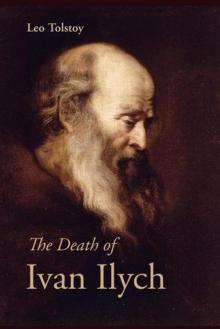 The Death of Ivan Ilych
The Death of Ivan Ilych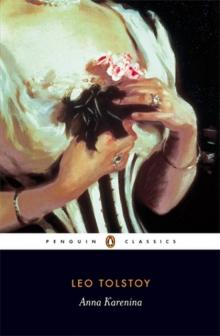 Anna Karenina
Anna Karenina Resurrection
Resurrection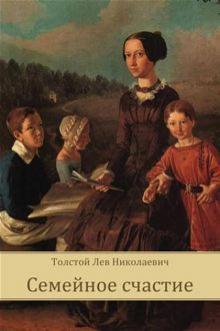 Family Happiness
Family Happiness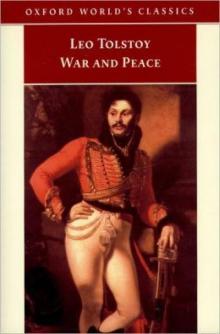 War and Peace
War and Peace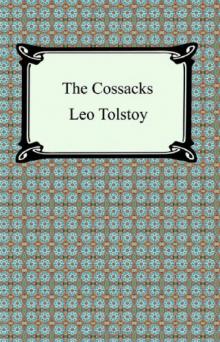 The Cossacks
The Cossacks The Kreutzer Sonata
The Kreutzer Sonata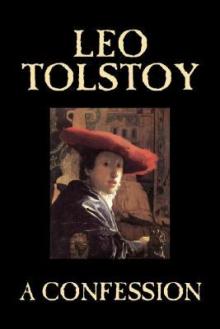 A Confession
A Confession The Kingdom of God Is Within You
The Kingdom of God Is Within You Father Sergius
Father Sergius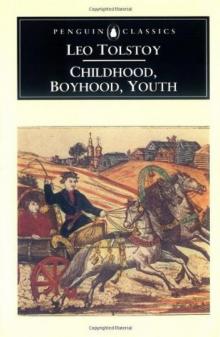 Childhood, Boyhood, Youth
Childhood, Boyhood, Youth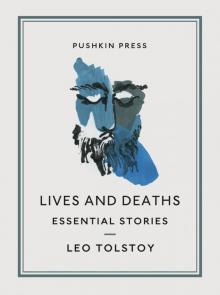 Lives and Deaths
Lives and Deaths The Devil
The Devil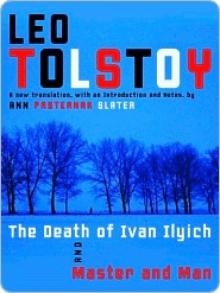 The Death of Ivan Ilyich and Master and Man
The Death of Ivan Ilyich and Master and Man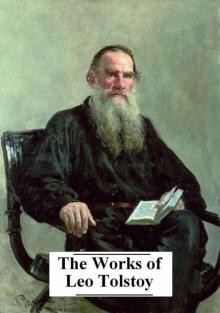 The Complete Works of Leo Tolstoy (25+ Works with active table of contents)
The Complete Works of Leo Tolstoy (25+ Works with active table of contents)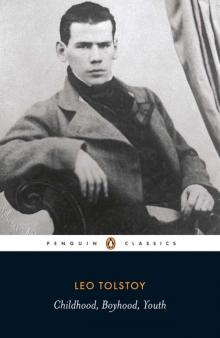 Childhood, Boyhood, Youth (Penguin ed.)
Childhood, Boyhood, Youth (Penguin ed.)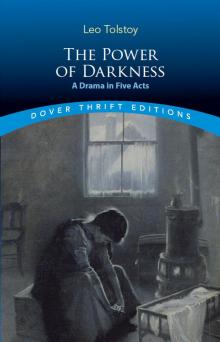 The Power of Darkness
The Power of Darkness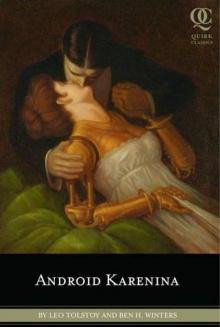 Android Karenina
Android Karenina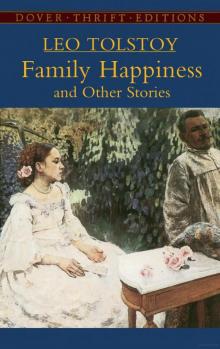 Family Happiness and Other Stories
Family Happiness and Other Stories The Lion and the Puppy
The Lion and the Puppy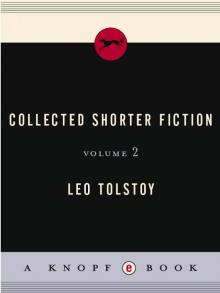 Collected Shorter Fiction, Volume 2
Collected Shorter Fiction, Volume 2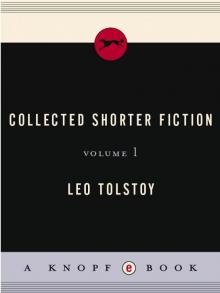 Collected Shorter Fiction, Volume 1
Collected Shorter Fiction, Volume 1